puertorico
Latest
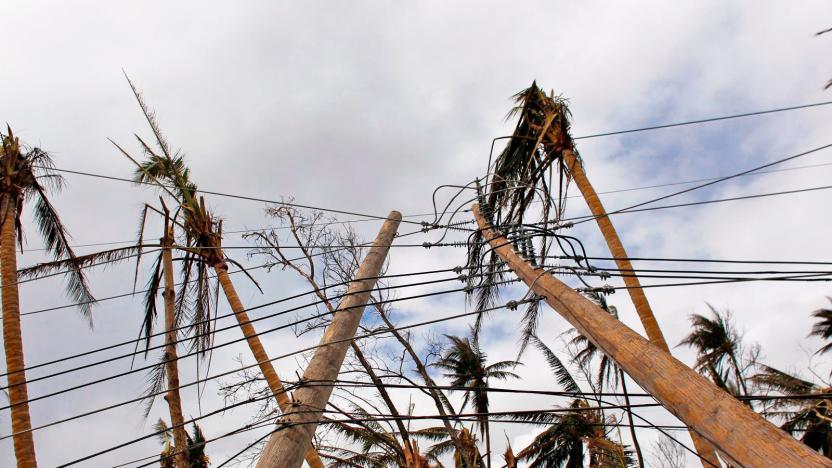
Puerto Rico governor will discuss Tesla solar systems with Elon Musk
Following hurricanes Irma and Maria, millions of Puerto Rico residents were left without electricity and it's expected to take months for power to be restored. Well one person mused on Twitter whether Elon Musk could help out by rebuilding the island's electricity grid with solar and battery systems and Musk responded that it wasn't out of the realm of possibility.
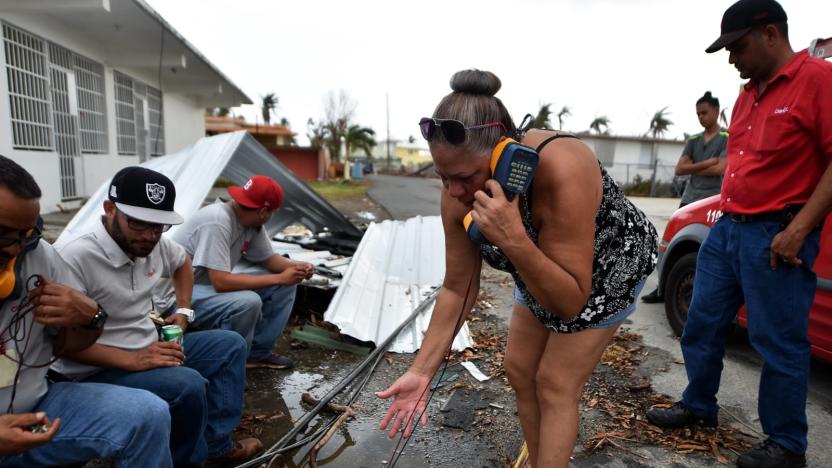
FCC approves $77 million to fix communications in Puerto Rico and VI
Two weeks after Hurricane Maria devastated Puerto Rico, the FCC has approved a measure providing up to $77 million to restore networks there and in the US Virgin Islands. It said that as of yesterday, 88 percent of cell sites were still down in Puerto Rico, as well as 67 percent in the USVI. While chairman Ajit Pai said "since we've adopted this item so expeditiously, carriers will be able to elect to have accelerated payments begin flowing this month," fellow commissioner Jessica Rosenworcel said "let's not kid ourselves, this is not enough. The road to recovery is long." The money is coming from the Universal Service Fund, and the FCC says "Any funds advanced under today's action can be used to repair telecommunications infrastructure and restore service to customers across the islands." This payment is intended to cover up to seven months of "high-cost support" and anticipated repair costs for companies that operate the towers, listed below.

How Puerto Rico's power crisis ends
When Hurricane Maria crashed into Puerto Rico on September 20th, it found a vulnerable target. The island is facing an extreme financial crisis that's been building steam for decades; roughly 43 percent of its residents live in poverty. Its sole electric company, PREPA, is $9 billion in debt and has been operating with outdated equipment for decades. Its power plants are an average of 44 years old and rely on outdated oil-fired systems, while most plants in the United States are about 18 years old and use newer natural-gas generators. PREPA filed for bankruptcy in July, calling its own infrastructure "degraded and unsafe." Then the hurricanes hit. On September 7th, Hurricane Irma skirted Puerto Rico's northern coastline as a Category 5 storm, killing at least three people and knocking out power for more than 1 million residents. That weekend, PREPA was able to turn the lights back on for 70 percent of its affected customers, but others expected to wait months for power to return. Hurricane Maria made its way up the Caribbean on September 20th, bringing winds of 140 MPH and dumping 25 inches of rain on Puerto Rico. It devastated the island. Maria knocked out PREPA's electrical systems, leaving 3.4 million people in the dark, with little hope of a quick recovery. Officials have suggested it will take four to six months for power to be restored.
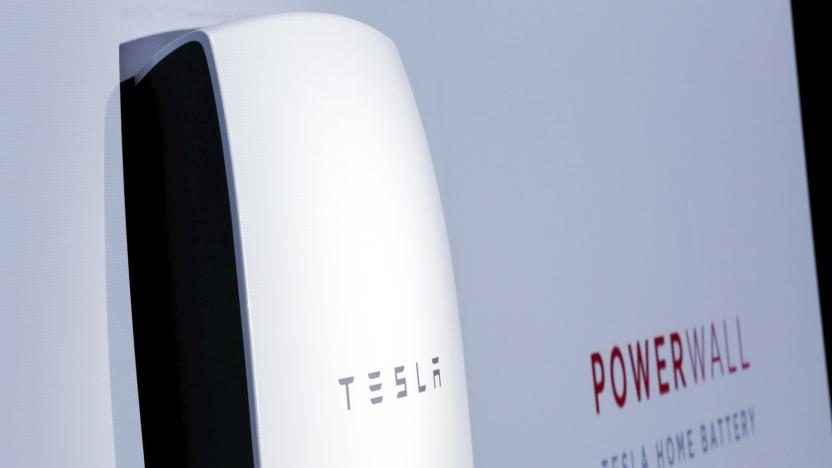
Tesla is shipping hundreds of Powerwall batteries to Puerto Rico
Tesla is sending hundreds of its Powerwall battery systems to storm-ravaged Puerto Rico. The commonwealth has been almost entirely without power since after Hurricane Maria made landfall on September 20th and tore up its energy infrastructure. Once the storm passed, Tesla started sending hundreds of its standalone power banks, and some have already arrived while more are en route.

Facebook sends help to Puerto Rico to get the island back online
Facebook has touted its ability to provide infrastructure for disaster-stricken areas before, and now it's dispatching a team to Puerto Rico to help reestablish internet connectivity. "We're sending the Facebook connectivity team to deliver emergency telecommunications assistance to get the systems up and running," Mark Zuckerberg writes in a status update.
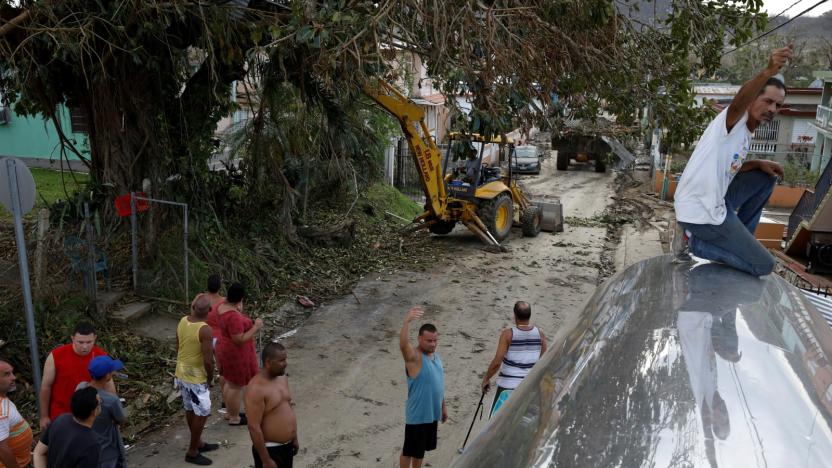
Univision map offers up-to-date info about damage in Puerto Rico
The news out of Puerto Rico post-Hurricane Maria is, quite frankly, horrifying. The entire island could be without power for months. A crucial dam, the Guajataca, may be about to burst. Communication with the island is limited at best. There are many people still trying to get in touch with family, to make sure that loved ones living on the devastated island are okay. Now, Univision News is trying to make that a bit easier. They've built a tool (available in Spanish only) where you can choose the region of the country you're concerned about, and Univision will tell you the most recent and up-to-date news about the situation in that area.
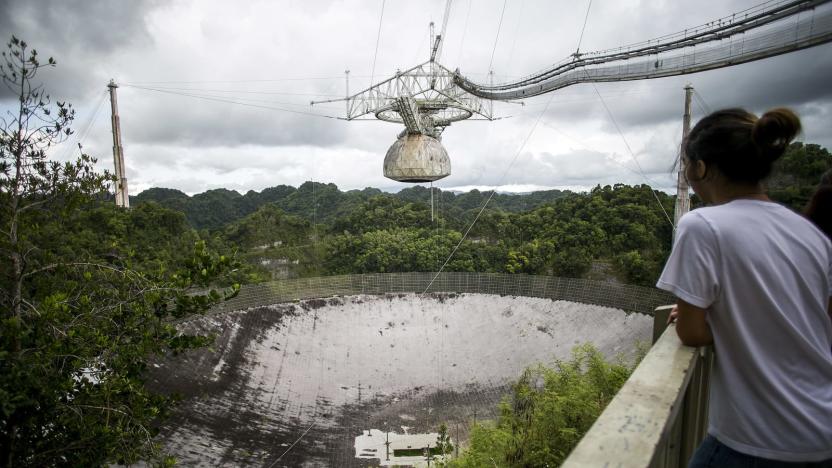
Hurricane Maria wreaks havoc on Arecibo radio telescope
Puerto Rico is suffering on an unimaginable scale in the wake of Hurricane Maria. Many have been displaced from their homes, and the entire territory may go without electricity and reliable communication for months. And while the human tragedy is clearly the most important concern, it's also having a terrible effect on the scientific community. Researchers have learned that the Arecibo Observatory and its signature radio telescope took significant damage when the hurricane passed over. All staff members are thankfully safe for now, but an atmospheric radar line feed and a 39-foot dish (used for Very Long Baseline Interferometry) were lost in winds that reached up to 155MPH. The gigantic central dish is intact, although the line feed's collapse punctured it in places.

The Puerto Rico blackout, from space
A fire at a power plant in Puerto Rico left almost 1.5 million homes and businesses without power on Wednesday night. On the ground, businesses were forced to close, and traffic ground to a halt as lights went dark. Around 340,000 people were left without water, and millions were without air conditioning and fans in 90-degree heat. A huge number of Puerto Ricans are still affected, and the scale of the problem is visible from space. NASA's Earth Observatory shared before-after images of the island, taken by The Visible Imaging Radiometer Suite (VIIRS) on the Suomi NPP satellite. The first image, taken at 2:50AM local time on Wednesday, shows the island bathed in artificial light, especially concentrated around the capital city of San Juan in the northeast. The second, captured at 2:31AM on Thursday, paints a very different picture. While San Juan is still fairly lit, surrounding urban areas are not, and many rural areas are pitch black. The southern city of Ponce is almost entirely in the dark. The images were captured using VIIRS "day-night" band. Earth Observatory explained that this band "detects light in a range of wavelengths from green to near-infrared and uses filtering techniques to observe signals such as gas flares, city lights, and reflected moonlight." Moonlight is the reason that the shade of the ocean shifts between the two images. Power had been restored to just under 400,000 homes and business by Thursday night, but millions are still without electricity. The island's government-owned power authority AEE said it expected more than half of its customers to have power by Friday morning, and 90 percent are hoped to be connected by Saturday.
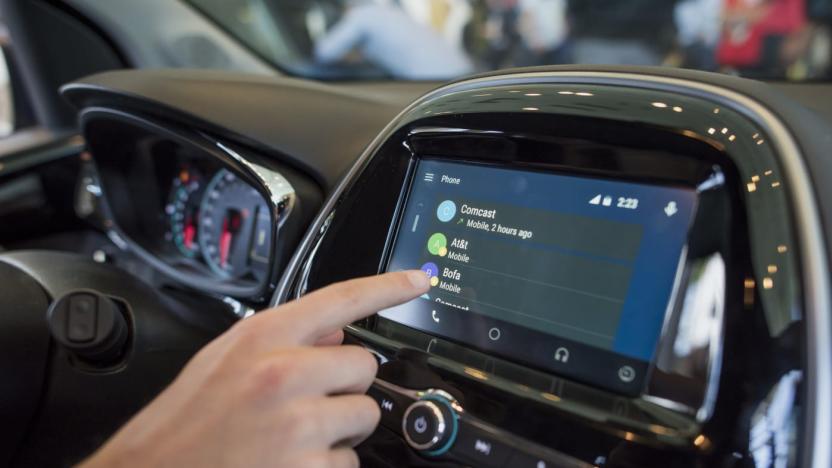
Android Auto reaches cars in 18 more countries
Android Auto isn't just available in a handful of countries anymore. Google has expanded its phone-as-infotainment integration to 18 more countries, as well as Puerto Rico. Most of the coverage revolves around Europe and Latin American nations (including Austria, Brazil, Colombia and Switzerland), but there are big exceptions like India and Russia. Your car or head-end unit will need to support Android Auto as well, of course, but this may hit the spot if you're hoping to stream music while you're stuck in Mumbai traffic.

Project Loon shows off autolauncher at work in Puerto Rico
With Project Loon, Google aims to provide wireless, high-speed internet to underserved areas like the entire nation of Sri Lanka. The team has figured out how to guide them around the globe using prevailing, high-altitude winds and the current design can stay aloft for nearly 100 days. To start delivering a service, Google just needs to get lots of balloons in the air, and that's where the portable autolaunchers come in. First revealed last May, Google recently showed off how it launched a Project Loon balloon in Puerto Rico in just a half-hour using the 55-foot tall crane-like device.
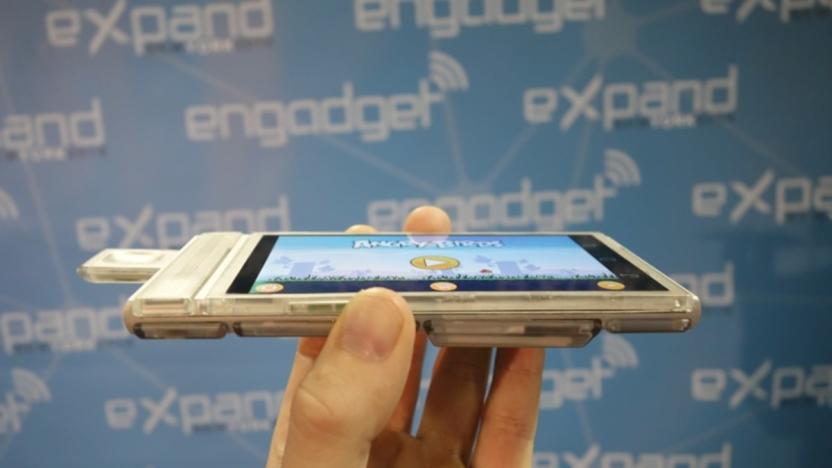
Modular mobile phone Project Ara is delayed until 2016
The much-anticipated Google-backed modular phone from Project Ara was supposed to make its debut in Puerto Rico later this year. However, the device won't be coming until at least 2016, thanks to an unexpectedly long prototyping phase, and likely won't use the US protectorate as its initial test market, as a series of tweets from company on Monday reveal. The company is reportedly "looking at a few locations in the U.S." to debut the phone but is certain that it won't be happening by the end of the year.
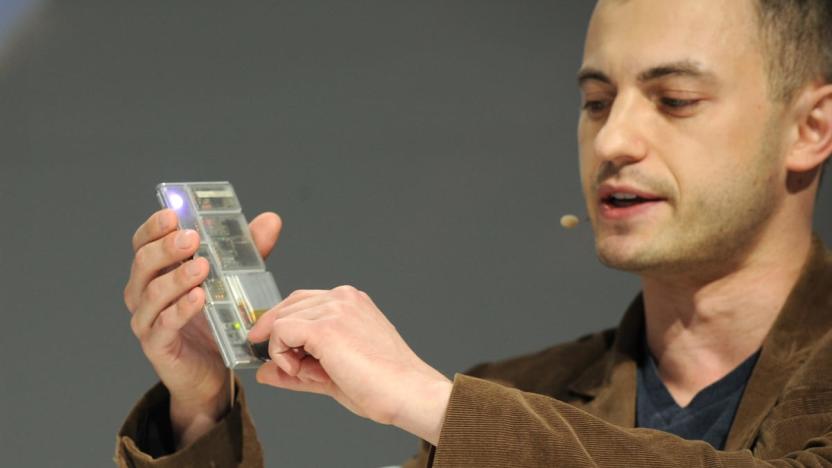
Project Ara will 're-route' market pilot for its modular smartphone
After going a while between updates, Project Ara has sent out a confusing series of tweets suggesting plans for the modular smartphone could change. We don't know if this has anything to do with the recent Google / Alphabet restructuring, but its official Twitter account says the team has been busy "making stuff", and that details on a "Market pilot re-route" are coming soon. We were expecting to see the Google-backed platform debut in Puerto Rico, but that is no longer a certainty. The account finished up by saying "this is not a goodbye" to the island, and left us awaiting further updates next week. Given recent events, we guess it's good to know the lights are still on, but anyone waiting for the chance to piece together their own smartphone will have have to stay tuned. [Image credit: Bryan Bedder via Getty Images]

Google's first test market for Project Ara will be Puerto Rico
Want to get your first taste of Project Ara, Google's modular phone project? You might have to move to Puerto Rico. That's because Google has designated the US territory as the market pilot site for Project Ara. Why Puerto Rico? Well, according to Paul Eremenko, Project Ara's lead, the island is very "well-connected" and has a designated free trade zone that would make it easy to get developer modules from around the world. Puerto Rico also apparently has a very diverse "mobile-first" market, and entry-level phones make up a great majority of sales. But perhaps more importantly, Puerto Rico is still under FCC jurisdiction and would therefore make a great test market for the US. The first two carriers to offer Project Ara will be Open Mobile and Claro, both of which offer 4G LTE coverage in addition to 3G. As for when exactly this will happen, well, Google didn't say, but we'll tell you as soon as they do.

A Mini mindset: how an automaker's Connected platform could spark a seismic shift in infotainment expectations
Mini sold some 66,000 vehicles in the United States last year, and despite being on American soil (in its current incarnation, anyway) for just 13 years, this market has quickly become its biggest. Those drawn to the brand are likely intrigued by, if not outright enamored of, its quirkiness. Mini likes to say that the company is "Not Normal," and it only takes a glance inside its cartoonish Countryman to see what that means. During a recent kickoff event to celebrate the impending launch of its Paceman model, we sought to get beneath the sheet metal and gear ratios, instead looking at the kinds of decisions that impact the marriage of automobiles and technology. Turns out, Johnly Velasquez and Chris Potgieter -- two gentlemen in charge of determining what technology ends up in Mini products -- were more than happy to discuss those nuances. In particular, we discussed how those details relate to the future of its Connected platform, the role that infotainment plays in its entire range of motorcars and the opportunities that lie ahead for Mini to embrace alternative power. Could Mini's prioritization of technology as a pillar of automotive manufacturing influence the entire industry? That's exactly what we'll explore just beyond the break.

Google Maps live traffic updates served up to seven new regions, 19 more get 'expanded coverge'
Ready for yet another dose of news related to Google Maps? The service's live traffic update functionality has been expanded yet again, and now seven more cities including the likes of Mexico City and Greater Johannesburg, South Africa can join in on the action. Better yet, 19 other major areas that already get traffic information are receiving "expanded coverage" for their roads. Naturally, all of the new goods are accessible through Google's various Maps apps by simply enabling the traffic layer. If you're eager to start scouting the traffic flow, you can hit up source link below to find out whether your locale is on the list.

Nokia Lumia 800 and 710 to get limited Latin American release in early 2012
If you're lucky enough to call Brazil, Colombia, Chile, Mexico or Puerto Rico home, and have been craving a bit of Nokia Lumia love, then felicidades! Señor Elop himself announced the 800 and 710 will be lighting up faces in a store near you from Q1 next year. Speaking from Sao Paulo, the Nokia CEO confirmed that both Windows Phone models would get a run out in the above countries, with production taking place in Brazil. Interestingly other large markets, like Argentina and Venezuela, didn't get a name call as one of the lucky countries, but you can bet your bottom peso though it won't be long before this is rectified. Hit up the source link for more info, en Español.

AT&T expanding LTE to 15 markets on November 20th
AT&T started out small, but it made a promise to blanket 15 cities with LTE by the end of the year, and by golly, it's going to keep it. In its press release announcing the Samsung Galaxy Tab 8.9, it also mentioned six additional markets to be graced by the super-fast speeds on November 20th. So by this time next week, customers in Charlotte, Las Vegas, Kansas City, Oklahoma City, Indianapolis and San Juan, Puerto Rico will be able to make their HTC Vivid, Jetstream and Samsung Skyrocket go a-blazin'. New York City? Sorry, not this round, but we're making progress. Check out the press release tidbit after the break.

Netflix Watch Instantly works in a new region: Puerto Rico
Ever since Netflix launched its Watch Instantly movie streaming service residents of and visitors to Puerto Rico have been left out of the fun, but today that changed. This evening Puerto Rican disc-only subscribers began receiving this email indicating their accounts are now streaming enabled, ending their infuriating wait watching the service expand internationally to Canada and heard rumors it would reach the UK or other countries soon. Netflix confirmed the expansion to us in an email while a post by the Puerto Rico Statehood Students Association -- which began agitating for the policy change about a month ago -- indicates they were successfully able to stream movies by PC and phone, although Twitter reports NBC content isn't working. Does this mean Fat Joe will drop a Roku reference on his next album, or that JJ Barea's NBA Championship celebration is finally getting under way in style? We can only hope so. Update: Per Netflix PR, this should also apply to other US Territories as well -- here's looking at you, Guam. [Image Credit: Rafy Mediavilla, thanks Ibrahim!]

Sprint / Google Voice integration now available for discounted accounts, still AWOL in sunny Puerto Rico
We've been keeping a close eye on Sprint's Google Voice integration since its troubled release last month, and Sprint has confirmed that many more of you are now able to activate the feature. Previously, individual customers with discounted accounts were being grouped with corporate and government enterprise customers, but it appears that the issue has been resolved (though corporate and government accounts are still unable to activate). However, Sprint confirmed that readers in Puerto Rico remain unable to activate regardless of their account status, and was unable to provide as estimate as to when integration will be available there. That said, Google has been incredibly proactive in getting these issues resolved from day one, despite clearly having their hands full this week. It looks like Google and Sprint have managed to work out some of the major kinks, but let us know in the comments if you're running into any other problems.

Boost Mobile intros International Connect, features unlimited texts to anyone, anywhere
A few Boost Mobile constituents are likely to appreciate the carrier's recent efforts to make conversations abroad more affordable with its International Connect plan. The $5 per month add-on provides unlimited calling to Canada and to over 150 cities in Mexico (landlines only), and unlimited text messages to anywhere in the world for CDMA users in the US, Puerto Rico, and Virgin Islands. Insatiable talkers (who haven't heard of Skype) can pay an extra $5 and get unlimited calls to over 30 countries including China, South Korea and Singapore. While we applaud Boost's efforts here (and adore the unrestrained texting), we'd really like to see this 'landlines' caveat go away -- who uses those anymore?















